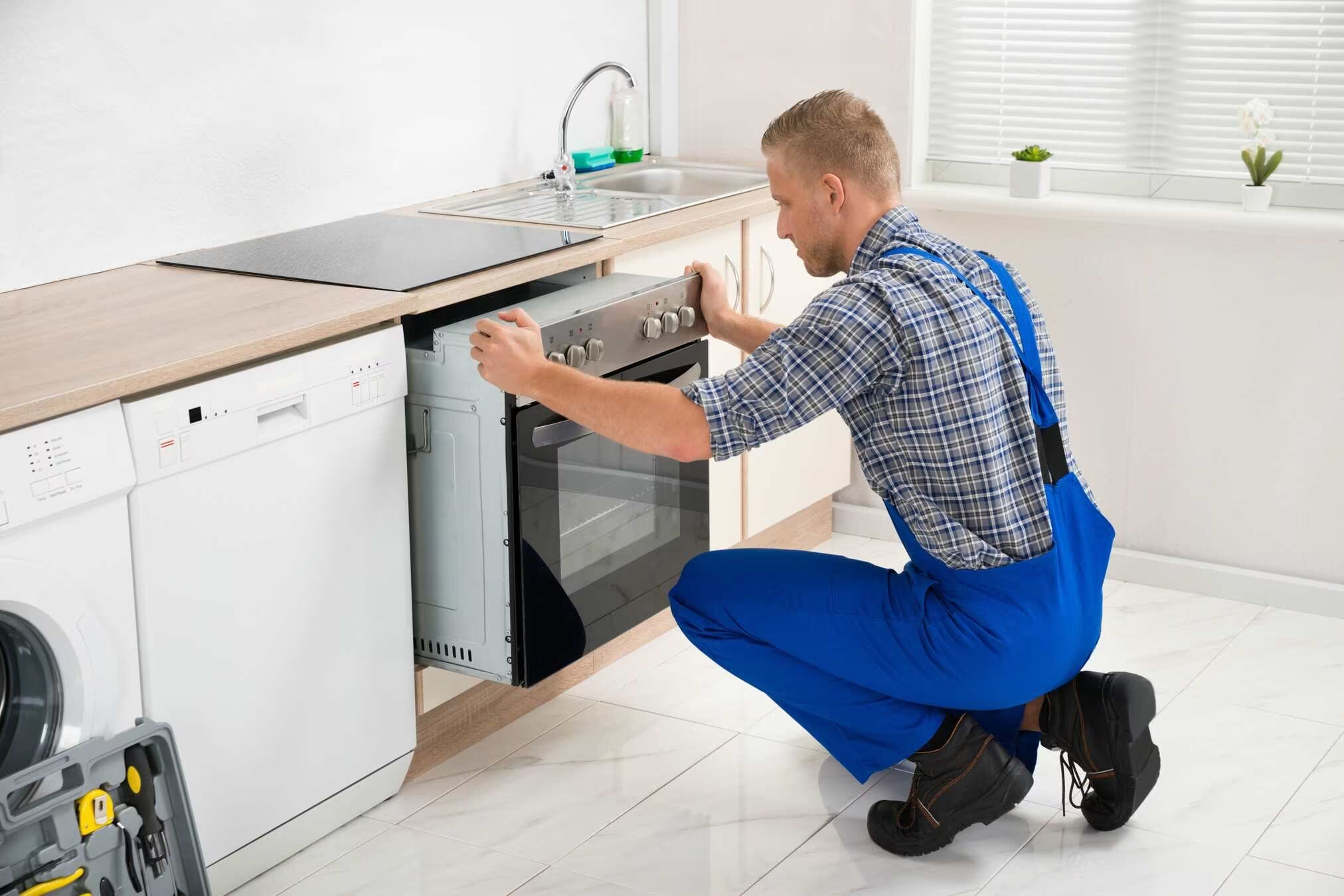Appliances are the backbone of modern homes, providing convenience and making everyday tasks more manageable. From refrigerators and ovens to dishwashers and washing machines, these appliances are crucial for smooth household operations. However, over time, appliances can experience wear and tear, malfunction, or stop working altogether. That’s where appliance repair and installation services come into play.
Whether you’re dealing with a broken fridge, a leaky dishwasher, or you’re upgrading your kitchen with new appliances, understanding the basics of appliance repair and installation can help you save money, time, and frustration. In this guide, we’ll explore everything you need to know about appliance repair and installation, how to troubleshoot common problems, and when to call a professional.
Why Appliance Repair & Installation Is Important
1. Cost-Effective Solutions
Rather than replacing an entire appliance, appliance repair can often be a more affordable solution. Most appliances can be fixed, provided the problem is identified early. If your appliance is under warranty or is relatively new, repair might be a more cost-effective choice than buying a new one.
2. Maximizing Lifespan
Regular maintenance and timely repairs can extend the lifespan of your appliances. With proper care, you can often get many more years of reliable use from your washing machine, refrigerator, or dryer, saving you the cost of premature replacements.
3. Convenience
Appliances are designed to make life easier, so when one breaks down, it can disrupt your daily routine. Timely repairs ensure that your home’s essential systems continue to function without a hitch. Similarly, professional appliance installation guarantees that your new appliances are set up correctly, so they work efficiently from day one.
4. Energy Efficiency
Older, malfunctioning appliances can use more energy than they should, leading to higher utility bills. Repairing or upgrading to more energy-efficient models can help reduce energy consumption and lower costs in the long term.
Common Appliance Issues & How to Address Them
1. Refrigerator Problems
Refrigerators are essential for keeping your food fresh, but they can develop issues like:
- Not cooling properly: This could be due to a clogged condenser coil, a faulty thermostat, or a broken compressor.
- Leaking water: This might indicate a blocked defrost drain or a problem with the door seals.
- Excessive noise: Check the condenser fan or evaporator fan for damage or wear.
Repair Tip: If your fridge isn’t cooling correctly, make sure the temperature settings are correct and the door seals are tight. Clean the condenser coils every six months to ensure proper airflow.
2. Dishwasher Issues
A malfunctioning dishwasher can create a mess in your kitchen. Common problems include:
- Not draining properly: This could be caused by a clogged drain hose or a faulty pump.
- Water not heating: The heating element or thermostat may be defective.
- Dishes not cleaning well: A dirty filter, blocked spray arms, or water pressure issues may be to blame.
Repair Tip: To fix a dishwasher that isn’t draining, clean the drain pump and check for any debris blocking the hose. Also, regularly clean the filter to ensure optimal performance.
3. Washing Machine Troubles
Washing machines are one of the most frequently used appliances and can face a range of problems:
- Won’t spin or agitate: Check the drive belt, lid switch, or motor coupler.
- Leaks: Hoses, the pump, or door seals may be compromised.
- Excessive noise: Worn-out bearings or an unbalanced load can cause noise issues.
Repair Tip: Ensure that your washing machine is level to prevent loud vibrations. If it’s leaking, check the door seal and hose connections for cracks.
4. Dryer Problems
Dryers often encounter problems that affect their ability to dry clothes effectively:
- Not heating: The heating element, thermal fuse, or thermostat may need replacing.
- Taking too long to dry: A clogged vent or lint filter could be restricting airflow.
- Noisy operation: Worn-out drum rollers or a broken belt can cause excessive noise.
Repair Tip: Clean the lint trap and vent system regularly to prevent blockages and reduce the risk of fire. If your dryer isn’t heating, check the thermal fuse and heating element.
5. Oven and Stove Issues
Your stove and oven are essential for cooking meals. Common issues include:
- Oven not heating: A faulty heating element, igniter, or thermostat can be the cause.
- Uneven heating: The oven may have a malfunctioning temperature sensor or a broken fan.
- Burners not working: Check the burner switch or heating element for damage.
Repair Tip: If your oven isn’t heating, check the igniter (for gas ovens) or heating element (for electric ovens). If the oven temperature is uneven, recalibrate the thermostat.
Professional Appliance Installation
When purchasing a new appliance, proper installation is essential to ensure it operates correctly and efficiently. Whether you’re installing a washing machine, refrigerator, or dishwasher, following the manufacturer’s instructions and hiring a professional can prevent potential issues.
Benefits of Professional Appliance Installation:
- Correct Setup: Professionals ensure that your appliance is installed to meet all safety and operational standards.
- Warranty Protection: Many appliance warranties are voided if the appliance is improperly installed. Professionals can make sure that installation is done to keep your warranty intact.
- Save Time and Stress: Installation can be time-consuming, especially if you’re not familiar with how to set up an appliance. Hiring a professional saves you time and effort.
- Avoid Potential Damage: Improper installation can damage your appliance or surrounding areas. Professionals have the tools and experience to avoid costly mistakes.
Common Appliance Installation Services:
- Refrigerator Installation: Ensures the fridge is level, connected to water lines (if applicable), and functioning correctly.
- Dishwasher Installation: Involves proper connection to plumbing and ensuring the machine is level and free from leaks.
- Washer & Dryer Installation: Ensures the units are level, connected to plumbing and electricity, and that hoses are secure to prevent leaks.
- Range and Oven Installation: Ensures proper gas or electrical connections and that the appliance is safely anchored.
When to Call a Professional for Repair or Installation
While DIY appliance repair can be tempting, some issues are complex and require professional attention. Here are some signs you should call in an expert:
- Electrical Issues: If your appliance has an electrical problem, such as tripping circuit breakers or short-circuiting, it’s crucial to call a licensed technician. Electrical repairs can be dangerous if not handled properly.
- Gas Problems: If your appliance operates on gas, like a gas oven or dryer, always hire a professional for repair or installation to avoid risks like gas leaks or explosions.
- Warranty Concerns: If your appliance is under warranty, tampering with it yourself could void the warranty. Always check the terms before attempting DIY repairs.
- Unusual Sounds or Smells: If you hear odd noises or smell gas or burning odors, it’s important to have the appliance inspected by a professional immediately.
- Lack of Time or Expertise: If you’re not confident in your repair skills or simply don’t have the time, hiring a professional is a safe bet.
Conclusion
Whether you’re dealing with a broken refrigerator, a malfunctioning dishwasher, or a new appliance installation, appliance repair and installation play an essential role in keeping your home running smoothly. While some issues can be tackled with a little DIY knowledge, more complex problems—especially those involving electrical or gas connections—are best left to the experts.
By addressing problems early, scheduling regular maintenance, and hiring professionals when needed, you can ensure that your appliances continue to work efficiently and last longer, saving you time, money, and hassle in the long run.

